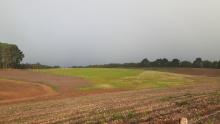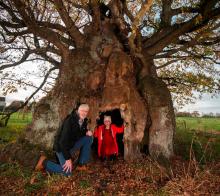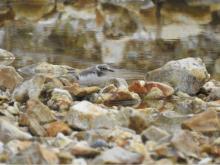The Greater and Lesser Horseshoe bats are two of the rarest species of bat found in the UK and there are longstanding records of them in the area around Aggregate Industries’ Westleigh Quarry, in Devon.
When Aggregate Industries first started planning a project to develop a new area of the quarry in 2005, it worked closely with Natural England to put in place a number of protection measures including standoff periods while the bats were active and hibernating. It also built a new roost in 2019, which was approved by Natural England and designed specifically for the individual species, to allow the rehoming of bats from an existing bungalow which was approved for demolition.
Now, less than 18 months after the roost was built, the company says there is clear evidence that it has been used by large numbers of bats in summer 2020 – signalling the successful rehoming of these rare species and going some way to demonstrate the company’s commitment to ecology.
Simon Wiltshire, biodiversity and restoration advisor (South) at Aggregate Industries, said the company has worked closely with both JG Ecological Surveys and Natural England throughout the project to understand how it could adapt its plans and processes to ensure the bats were protected.
“We found evidence of cave roosts which determined the extraction boundary for the quarry development and we put in place standoff periods to ensure that there was no impact on bat populations in the caves," Wiltshire added.
“But perhaps to most pleasing aspect was the way in which the bats have taken to the new roost, which we designed and built with approval from Natural England to enable the necessary demolition of an abandoned bungalow used as a summer roost by low numbers of Lesser Horseshoe bats.”
Lesser Horseshoe bat droppings were first discovered in late summer 2019, just months after the compensatory roost was completed. By autumn 2020, large amounts of Lesser Horseshoe droppings were found along with a Greater Horseshoe bat, apparently hibernating.
Wiltshire said: “Many artificial roosts for bats and other protected species are never used or take many years to be found. “For this roost to be used so quickly by the target species and the other rare species of bat in the area is a great result for the bats but also a fantastic demonstration of our responsibility to ecology in practice.
“By working closely with the experts and taking into account the needs of the wildlife, we were able to design and build a compensatory roost for a significant proportion of the usual cost. It shows that with innovative design in the best location, this approach to ecology really can make a difference.”







